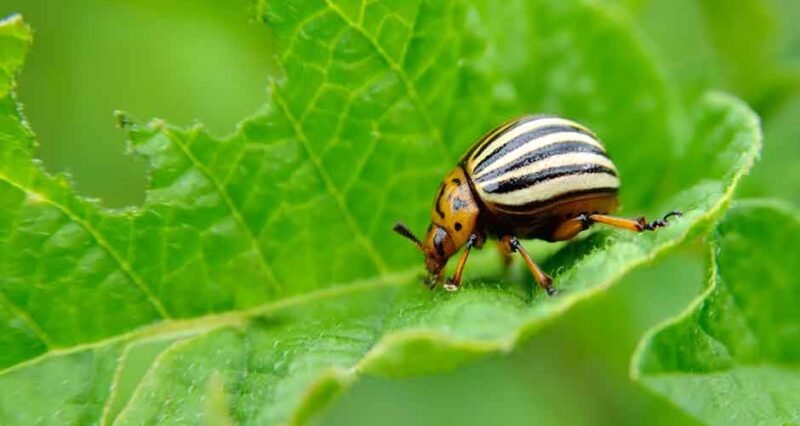
Ask any gardener, and they will most likely tell you that their hobby would be much simpler if pests didn’t exist. Pests are a nuisance, and this is certainly no secret in the gardening world.
Garden pests come in a range of forms, shapes, and sizes. It’s their diversity that makes them so difficult to control and eliminate because each species of pest requires different methods to control or kill.
Certain pests are more common than others, but we always recommend learning about as many plant pest prevention and pest control methods as you can. Doing so prepares you for the worst and means you aren’t scrambling at the last minute to figure out how to protect your plants when a pest infestation is already underway.
To help you prepare for a potential pest infestation and have the most effective plant protection methods on hand when you need them, we’ve covered the most common pests you need to be aware of and how to get rid of them.
Caterpillars
Most people say ‘aw’ when they see a caterpillar. These tiny, green creatures have an adorable appearance, and many people love the gorgeous butterflies they turn into after metamorphosis.
However, caterpillars have a dark side. They can be pests in your garden as they enjoy chewing through the leaves and flowers of plants. They will also happily chew on your fruits and vegetables if you’re growing these in your garden.
Physical damage to a plant’s leaves and flowers can cause stunted growth and functional defects. It can also lead to reduced fruit and vegetable yield, which can impact your ability to feed your family or make money from selling fresh produce.
So, how can you get rid of caterpillars? The most effective method is to spray insecticides over your plants. Doing so kills caterpillars and prevents them from causing irreversible damage to your precious plants.
Snails
Snails are arguably less cute than caterpillars, and they can be just as detrimental to your garden. They are a common pest but can be difficult to spot until it’s too late.
Snails enjoy eating plant leaves and debris. They can eat several times their body weight in a single meal, potentially causing extensive damage to your plants before you have a chance to do anything about it.
Your best option is to prevent snails from infesting your plants in the first place, as opposed to dealing with them when they’ve already infiltrated your garden. You can keep snails away from your garden by using snail repellent spray or by laying down coarse objects like sandpaper or lava rock to act as a physical barrier for snails.
Slugs
Slugs are another common garden pest that you’ll need to keep under control if you want your plants to thrive. They leave holes in stems, leaves, flowers, tubers, and bulbs, causing damage throughout the entire plant. They also tend to destroy young seedlings, preventing them from growing into blooming plants.
The pest prevention methods for snails and slugs are similar. You can protect your garden from snails and slugs using natural methods like organic phosphate pellets or coffee beans. Alternatively, you can use copper tape to barricade your plants and prevent slugs from being able to access them.
You can also use something known as metaldehyde, which is a molluscicide, meaning it kills slugs and snails. However, you’ll need to be careful when handling this substance. Metaldehyde can be toxic to humans in large quantities, causing a range of negative and potentially life-threatening symptoms.
Whiteflies
Whiteflies are only very tiny insects, but they can cause destruction in your garden. As small and seemingly insignificant as they seem, whiteflies are a pest problem and can cause chaos in your garden.
They suck the sap out of plants and excrete a substance called honeydew, which is sticky and causes plants to wilt and droop. Honeydew can also cause a plant’s leaves to turn yellow or brown.
To eliminate whiteflies from your garden, you can use insecticide sprays or soaps. Alternatively, you can spray natural oils, such as neem oil, over your plants to deter whiteflies.
Aphids
Aphids are another tiny insect that can cause significant damage by sucking the sap out of plants. In turn, the plant’s leaves can curl at the edges or become completely distorted, reducing their ability to photosynthesise and produce energy for plant growth and development.
Aphids tend to reproduce rapidly, meaning it only takes a day or two for your whole garden to become infested. Thankfully, there are a few things you can do to eliminate them from your garden. Firstly, you can introduce their natural predators, ladybirds, into your garden. Secondly, you can purchase insecticides in spray or soap form to kill those pesky aphids.

